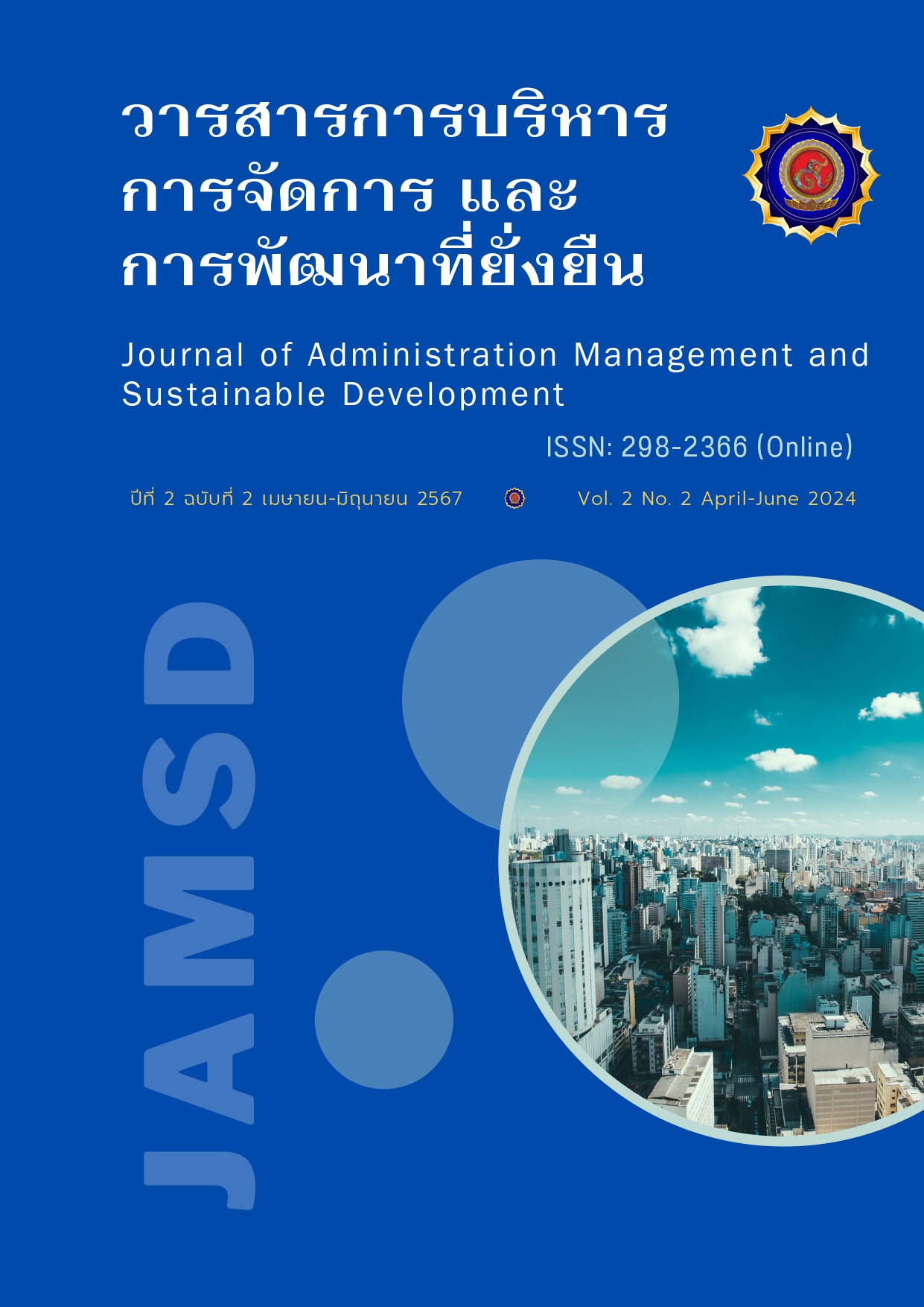Impact of the PHEU THAI PARTY's policy to increase the minimum wage to 600 baht by 2027
Keywords:
impact, policy, minimum wageAbstract
Policy to increase the minimum wage to 600 baht by 2027 of the Pheu Thai Party Labor in the industrial and service sectors Because it will help increase income for minimum-wage workers to have better living conditions. Reduce income inequality and stimulate the domestic economy. The minimum wage will be raised from 336 baht to 600 baht within 4 years, starting in steps. In the first year, it will increase to 375 baht; in the second year, it will increase to 425 baht; in the third year, it will increase to 475 baht; and in the final year, it will increase to 600 baht. This policy has received support from many people. This is because they want to have an increased income in order to support their family and live a decent life. It is also a policy that will help stimulate the domestic economy. Workers will have more income, allowing them to spend more on various goods and services, which will have a positive impact on the business sector and the economy as a whole. However, this policy has some opposition from some entrepreneurs. They fear that it will increase production costs. and may affect trade competition. It has the potential to raise inflation. The minimum wage adjustment will be carried out gradually. To give entrepreneurs time to adjust, and the government will ensure that inflation does not rise. It will use various measures, such as controlling the prices of essential goods and services.
References
กษิดิ์เดช คำพุช. (2565). ค่าแรง 600 บาท: ค่าแรงขั้นต่ำประเทศไทย โตทันเศรษฐกิจแค่ไหน. สืบค้นจาก https://www.bbc.com/thai/articles/cneg8glv0m2o.
พรรคเพื่อไทย. (2565). เพื่อไทย ยัน ค่าแรงขั้นต่ำ 600 บ. เงินเดือน ป.ตรี 25,000 ทำได้จริง เหตุหากรัฐบาลเพื่อไทยยกระดับ ศก.ทั้งระบบ ภาคการผลิต การเกษตร เงินหมุนในระบบเร็วขึ้น เป้าหมายลดความเหลื่อมล้ำ-รวยกระจุกจนกระจาย. สืบค้นจาก https://ptp.or.th/archives/24022.
Card, D., & Krueger, A. B. (1995). The effect of minimum wages on employment: A meta-analysis of 60 studies. American Economic Review, 85(4), 729-735.
Lemieux, T., Card, D., & Dahl, G. (2004). The effect of minimum wage on employment and inequality: A review of the evidence. Industrial and Labor Relations Review, 57(2), 190-233.
Money buffalo (2023). วิเคราะห์ ค่าแรงขั้นต่ำ 600 บาท สร้างปัญหาเงินเฟ้อกระฉูด?. สืบค้นจาก https://www.moneybuffalo.in.th/economy/analyze-the-minimum-wage-of-600-baht-causing-a-problem-with-high-inflation.
Neumark, D., & Wascher, W. (2008). The effects of minimum wages on poverty and inequality. Journal of Economic Literature, 46(4), 915-964.
Neumark, D., Schweitzer, M., & Wascher, W. (2004). The impact of minimum wage on employment: A meta-analysis of the evidence. Industrial and Labor Relations Review, 57(2), 295-314.
Reich, M., Allegretto, S., Dube, A., & Reich, M. (2013). The minimum wage and the great recession. Economic Policy Institute.






